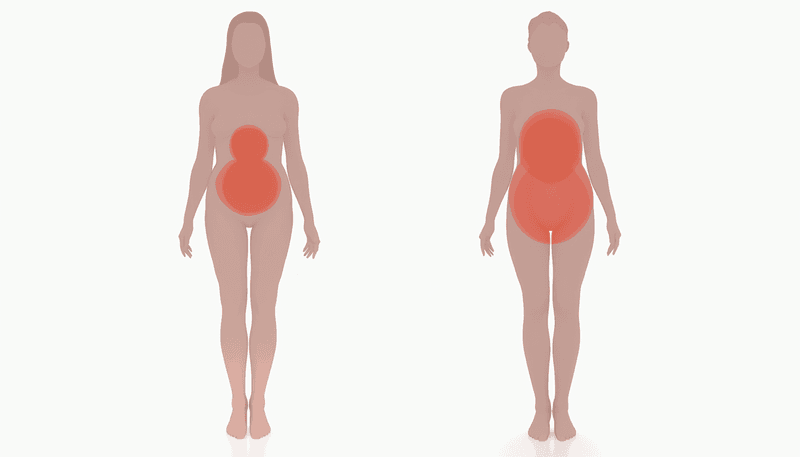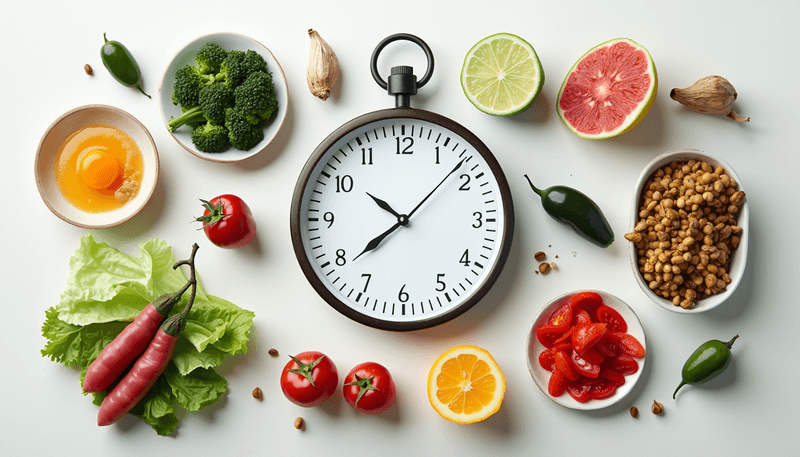Mediterranean Diet Magic for Menopause Weight

That frustrating weight gain around your middle that seems to appear out of nowhere during menopause? You're not alone. Recent research shows that Mediterranean diet could be as effective as medical interventions for managing menopausal weight gain. As someone who's both experienced and studied menopause extensively, I'm excited to share these evidence-based insights that could change how we approach this challenging transition.

Understanding the Menopause-Weight Connection
When estrogen levels drop during menopause, our bodies undergo a dramatic shift in how they store and process fat. Think of estrogen as your body's natural weight management system - when it decreases, this system gets thrown off balance. The research shows that women typically gain about 2 kg during the menopausal transition, but more importantly, fat redistribution occurs even if the scale doesn't change much.
"Have you noticed changes in where your body stores fat, even if your weight hasn't changed significantly?"
This redistribution isn't just about appearance - it's about health. The study reveals that visceral fat (the kind that wraps around your organs) increases starting 3-4 years before menopause. This type of fat acts like a tiny factory producing inflammatory substances that can affect your whole body.
The Mediterranean Diet Solution
The Mediterranean diet isn't just another eating plan - it's a scientifically proven approach that specifically addresses menopausal weight challenges. Here's what makes it special:
- Anti-inflammatory Foods: The diet is rich in foods that fight inflammation, including extra-virgin olive oil, colorful vegetables, and fatty fish
- Fiber-Rich Components: Legumes, whole grains, and abundant vegetables help manage hunger and stabilize blood sugar
- Balanced Protein Sources: Emphasis on fish, legumes, and moderate amounts of lean meat supports muscle maintenance
"What small Mediterranean-inspired change could you make to your next meal?"
Practical Implementation Tips
Based on the research, here's how to make the Mediterranean diet work for you during menopause:
Energy Needs: Your metabolism naturally slows during menopause. The study recommends:
- Reducing daily calories by 500-750 kcal for weight loss
- Spreading protein intake evenly across three meals
- Aiming for 0.8g protein per kg of body weight
Meal Timing and Structure:
- Start your day with whole grains and proteins
- Include healthy fats at each meal (olive oil, avocados, nuts)
- End your eating window earlier in the evening
"How might adjusting your meal timing affect your energy levels throughout the day?"
Beyond Weight Management
The benefits of the Mediterranean diet extend beyond the scale. The research shows it can help with:
- Hot flashes and night sweats
- Bone density maintenance
- Cardiovascular health
- Blood sugar regulation
Real-life success looks like this: One of my clients, Sarah, struggled with persistent weight gain and hot flashes. After three months of following the Mediterranean diet principles, she not only lost 4kg but also reported fewer hot flashes and better sleep quality.
A final note: This isn't about perfect adherence - it's about progress. Start with one change, like swapping your cooking oil for extra virgin olive oil or adding an extra serving of vegetables to your daily meals.
"Ready to take the first step? Which Mediterranean diet principle resonates most with you?"
Your next meal is an opportunity to start this journey. Why not begin with a simple Greek salad topped with olive oil and a piece of grilled fish? Your future self will thank you for making this evidence-based choice today.

Olivia Rose Chen-Martinez
Olivia Rose Chen-Martinez is a seasoned health and wellness writer with a focus on women’s health issues, including PCOS, perimenopause, and holistic wellness. With a background in Journalism and Public Health from UC Berkeley, Olivia draws on over 15 years of writing experience to deliver empathetic, research-backed insights. Her work blends personal anecdotes and actionable advice, resonating with readers seeking accessible and trustworthy information. Based in Austin, Texas, Olivia is also a certified yoga instructor and a dedicated advocate for balanced, integrative approaches to women’s health.




